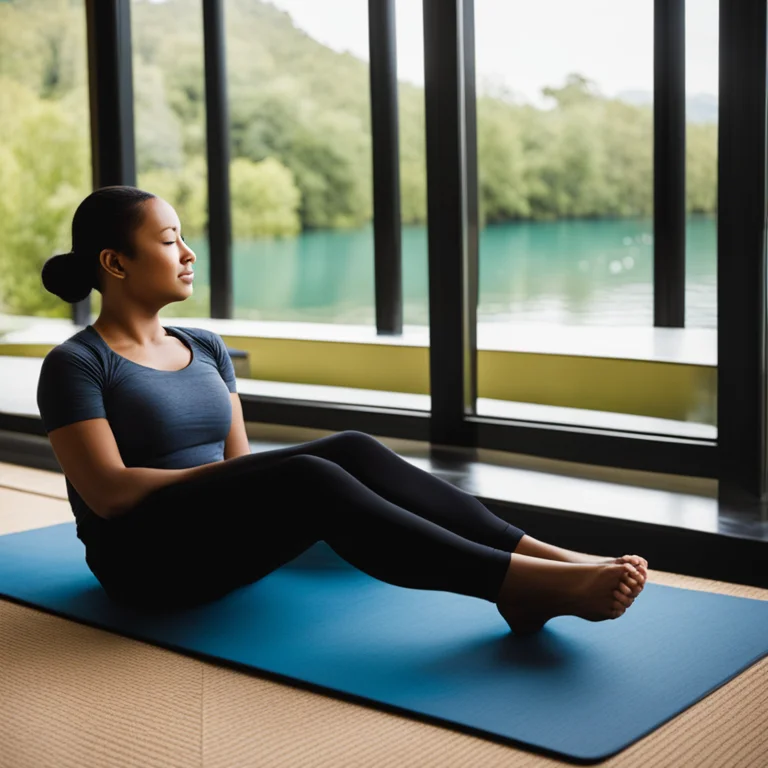
A Handbook to Mindfulness Meditation
Master the art of mindfulness meditation with this step-by-step guide designed for tranquillity and self-awareness.
article by Hina Kurosawa
Beginning Your Mindfulness Journey
Meditation often appears intricate, yet it's truly about returning to simplicity. Mindfulness meditation, a practice evolving for centuries, isn’t about becoming a different person or even a better person; it's about training in awareness and understanding how and why you think and feel. This is a crucial distinction as we enter 2024, where technology often outpaces our ability to process the rapid changes. To commence your practice, select a quiet place free from interruptions, where you can leave the digital world behind. Ensure your meditation area promotes a feeling of peace.

Establishing a Comfortable Posture
Physical comfort is key to successful meditation. Sit cross-legged on a cushion or chair, with your back straight yet relaxed. It's essential your posture promotes alertness without strain, as physical distractions can impede your focus. Modern ergonomic designs offer meditation seats to enhance your comfort if sitting on the ground feels challenging. Your hands can rest gently on your lap or knees. The more physically relaxed you are, the easier it will be to concentrate on the meditation process.

Focusing on the Breath
Breath is a cornerstone in the practice of mindfulness meditation. Current research, especially in the realm of neurology and psychiatry, underscores breathing's role in modulating stress and emotional responses. Attune to your natural breathing rhythm, observing the breath without changing it. Pay attention to the sensation of air moving in and out of your nostrils, or the rise and fall of your belly. Whenever your mind wanders—and it will—gently guide it back to the sensations of breathing.

Embracing the Wandering Mind
An inevitable part of meditation is dealing with the distractions of the mind. In 2024, the everyday bombardment of notifications, information, and digital content can create a noisy internal landscape. Mindfulness is about noticing these distractions and gently returning to your breath. Acknowledge wandering thoughts as natural, not as mistakes or failures. With practice, you will notice a slow transformation in your relationship to the thoughts and stories that your mind generates.

Integrating Mindfulness into Daily Life
Mindfulness meditation isn't limited to your cushion or quiet room; it's about cultivating a consistent attentive state throughout your day. Techniques like 'mindful walking,' where you focus on the sensation of moving and touching the ground, are becoming prevalent. Likewise, 'mindful eating,' paying close attention to the taste, texture, and sensations of your food, can turn a routine activity into a mindful experience. These practices can profoundly impact stress levels and overall well-being.
Closing Your Meditation Session
End each meditation session by slowly expanding your awareness beyond your breath. Notice the sounds around you, the feeling of your body in space, and the lingering effects of your mindfulness practice. Take a moment to express gratitude for taking the time to cultivate mindfulness. This conscious transition helps merge the clarity and calm of meditation with the rest of your life's activities. By doing so, the line between meditative practice and daily experience begins to blur, marking the true essence of mindfulness.
Published: 1/9/2024
Modified: 1/9/2024
More predictions
Come back here soon to learn more about yourself and your future


Mindful Meditation: A Journey to Weight Loss
Discover how mindful meditation can be an effective tool for weight loss, helping you to create a harmonious mind-body connection for better health.


Mindfulness Meditation for Young Students
Mindfulness meditation practices tailored for first graders to foster attention, calmness, and emotional regulation.


Mind Boost: Can Meditation Enhance Intelligence?
This article delves into whether meditation practices can contribute to increased intelligence, combining scientific insights and practical advice for mental enhancement.